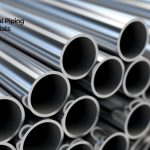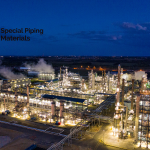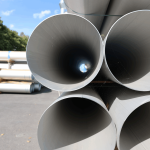Testing
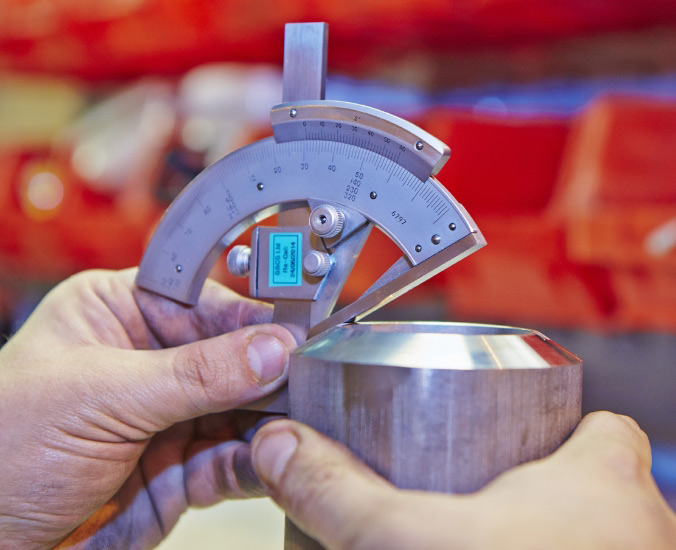
Testing
The high specification materials that Special Piping Materials supplies to clients around the world are subject to rigorous testing to ensure that they can perform in high-stress environments.
Corrosion, heat and pressure are all factors that our products can be exposed to and consequently have to endure. The core material of these products – i.e., the metal – have to be resilient and our clients have to be confident in their ability before they are put in situ.
The only way to do this is through testing. Testing ensures that there are no flaws in the products and materials we supply, whether that’s round bar, forged fittings or seamless pipe and our clients have the peace of mind that they will perform in the way that they are required to.
Speak to your account manager at Special Piping Materials today to find out what testing we can arrange in accordance to internationally recognised standards and, what’s more, how we can project manage the procedures for you.
Testing can be categorised in two ways – destructive testing and non-destructive testing.
Quality control
All stock held by Special Piping Materials is tested in accordance with respective ASTM standards, ASME standards and relevant international specifications.
If we need to subcontract our testing to an external company, then we use NAMAS/UKAS and ISO 17025 approved test houses to ensure reliability and credibility.
Sticking to these quality controls means that we know our testing partners are both authorised to undertake the work and are independent in their evaluations.
Many different national and international trade associations are in existence and work to promote the industry, share knowledge and develop international standardised methods and training. These include the American Society for Non-Destructive Testing, the Non-Destructive Testing Management Association, the International Committee for Non-Destructive Testing, the European Federation for Non-Destructive Testing and the British Institute of Non-Destructive Testing.
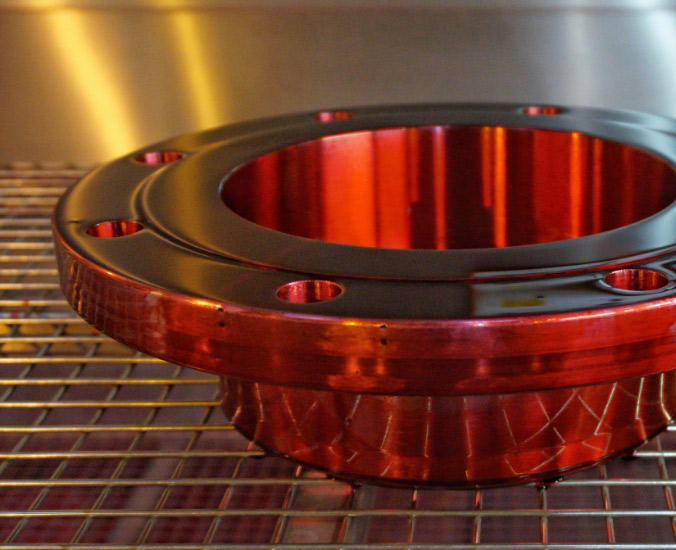
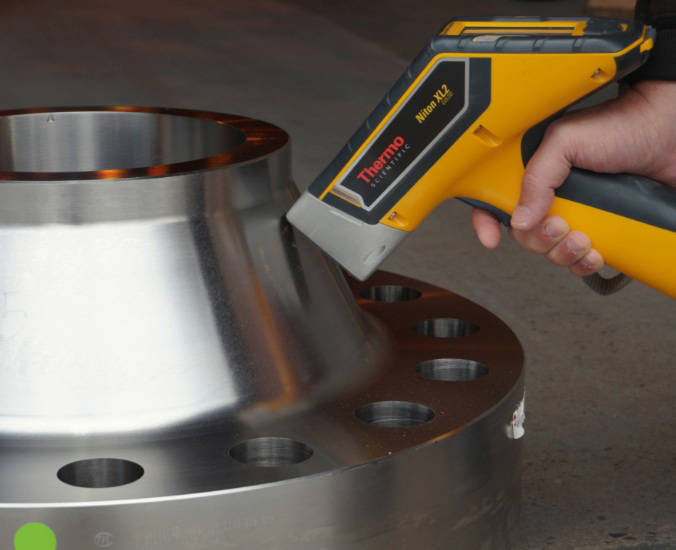
Destructive Testing
Destructive testing methods are designed to be just that – destructive. This may seem counter-intuitive, but it works by intentionally making a material fail so that the point of failure can be analysed.
Analysing and recording the failure of the material can be done in a variety of ways, using high-speed cameras, sound detectors or stress gauges.
Destructive testing procedures can either follow specific standards or they can be tailored to reproduce a particular environmental condition. Special Piping Materials works with a network of reputable testing houses around the globe who can meet any requirements that our discerning clients have.
The destructive tests we can organise prior to the delivery of our products include:
• Product analysis
• G48 corrosion test
• Micrographic examination
• Ferrite and phase count
• Charpy impact test
• Tensile test
Destructive testing has many advantages such as it:
• Verifies properties of a material
• Determines quality of welds
• Helps you to reduce failures, accidents and costs
• Determines impact resistance
• Analyses ductility
• Can produce knowledge about yield and ultimate tensile strength, fracture toughness and fatigue
strength.
• Can form a key part of engineering critical assessments
• Provides materials characterisation
• Can find fabrication validation
• Predicts service life
• Can see the molecular level of at item in order to determine the exact chemical composition of an object.
Often, destructive methods of testing can be used effectively to determine the stability and performance of a material or product before it is mass produced. This means that you can understand its durability and before it reaches the wider market.
Further to this, destructive testing is often easier to carry out and easier to interpret than its non-destructive testing counterparts.
The main negative of destructive testing is made obvious by its name; That it results in the test sample or area being irreversibly damaged or destroyed during the procedure.
Non-Destructive testing
Non-destructive testing encompasses an extensive range of tests that are used to determine the integrity and properties of a specific material, product or system without damaging the test subject.
These techniques are widely believed to be essential for quality regulation. They ensure that important structures like pipelines, mining plants and even medicines are durable and long-lasting.
Non-destructive testing is considered to be a very valuable process. It does not affect the integrity of the item being investigated and can therefore save both time and money when planning, evaluating and troubleshooting particular projects.
These important tests are conducted in a wide variety of ways and can detect defects or damage both on the surface of an item or within the component itself. Early detection of any flaws through non-destructive testing can be critical in preventing accidents and shutdowns of big plants and machines.
The non-destructive tests we can organise prior to the delivery of our products include:
• Dye penetrant testing (conducted in-house )
• Ultrasonic testing
• Hardness check (conducted in-house)
• Ferrite check (conducted in-house)
• PMI (conducted in-house)
• X-ray
There are many advantages of non-destructive testing such as:
• The results are immediate: This is especially true if they are carried out by a supplier like Special Piping
Materials as we are able to test the material as soon as it arrives in our warehouses.
• It is cost-effective: There is no need to be extra material to destroy through testing.
• Gives confidence: Because the actual items are being tested, end-users have the certainty that they meet
the specification required and can withstand the environments that they are being put into.
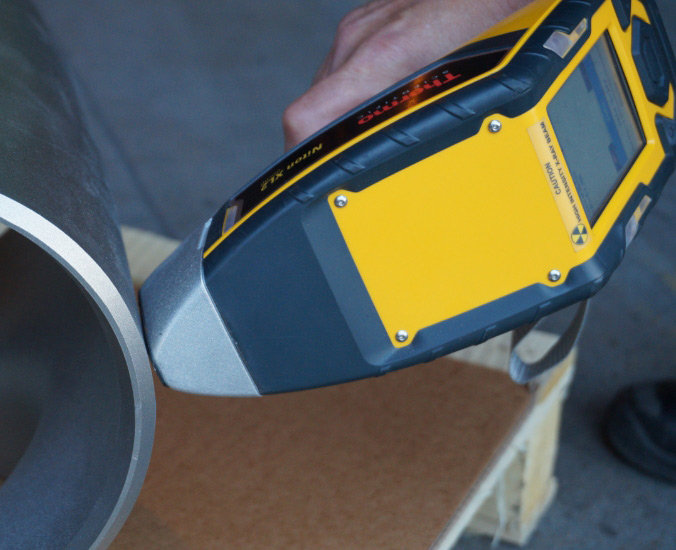
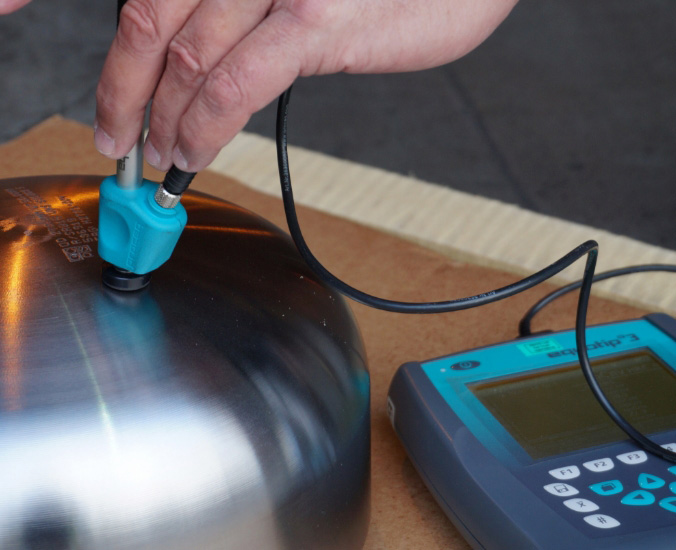
In-house testing facilities
Special Piping Materials is qualified to carry out many non-destructive tests in-house in our warehouses around the world, therefore saving clients both time and money. These are tests such as Dye-Pen Inspections and Impact Testing.
We have highly trained, specialist ASNT and PCM qualified personnel at all our offices around the world meaning we can carry out these tests quickly and cost-effectively on any material.
The vast amount of stock that we carry across the global is tested in accordance with respective ASTM standards, ASME standards and international specifications such as Norsok MDS, Shell MESC & Exxon Mobil.
As a globally focused business, we appreciate that different clients have different requirements and specifications when it comes to their products. This means that some non-destructive testing does need to be outsourced to our trusted network of testing houses.
More articles about Testing
England
Scotland
USA
Brazil
Singapore
Dubai
Oman
Australia
Website Design by nvisage



 Português do Brasil
Português do Brasil